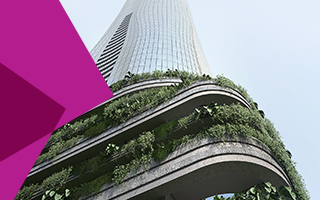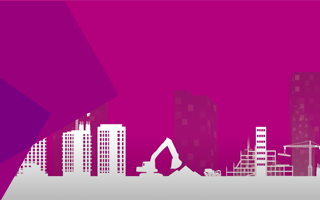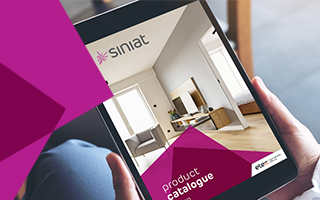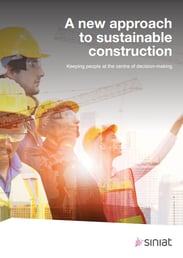Sustainability in the construction industry involves more than just energy efficiency, emissions reduction, recycling and waste management. This is because sustainability is not only about the environmental impact of business activities and decisions, but involves a social aspect (people and society) as well.
Social sustainability is about the effects of business activities on the wider community. Social sustainability involves embracing change to improve the wellbeing of people - now and into the future. This wellbeing is intertwined with the environmental and economic aspects of sustainability, and influenced by many factors including health, safety, standard of living, equality, community connectedness and freedom.
The human element of sustainability is reflected in the Green Building Council of Australia's (GBCA) aspirational benchmarks for addressing the key issues of the next decade: climate action, resource efficiency, and health and wellbeing. The focus on people and society also plays a very important role in the Sustainable Development Goals (SDGs) as identified by the United Nations (UN).
At Etex social sustainability is entrenched in the Etex Road to Sustainability 2030, a roadmap that sets clear ambitions for the future across five priority areas: health, safety and well-being; customer engagement; diversity, equity, and inclusion; decarbonization and circularity.
As one of the Etex Group’s flagship commercial brands, Siniat shares this holistic approach to sustainable development, pursuing meaningful ways to reduce our carbon footprint while placing people front and centre of their operations. This mindset embodies one of Etex’s core values “Connect and Care”, which acknowledges that people working together are the essential driver of a sustainable, carbon-neutral future.
The social aspect of sustainability is however still often overlooked in the design and specification of new buildings with designers and specifiers placing emphasis on environmentally responsible products, embodied emissions and energy efficiency. Often the broader impact of construction projects on society and individual lives are not considered to the same extent.
True sustainability can only be achieved when ethical and social considerations are brought into the design and specification process. When choosing who to work with, the difference between two similar products may be vast when ethical and social considerations are brought into the equation.
Whitepaper
In collaboration with Architecture & Design, Siniat has published the whitepaper A new approach to sustainable construction Keeping people at the centre of decision-making in which we take a close look at emerging issues relating to social sustainability within the construction industry and highlight new, collaborative approaches that achieve better outcomes for people and the environment.
To find out more about how Siniat can help you achieve your sustainability goals, click here.









